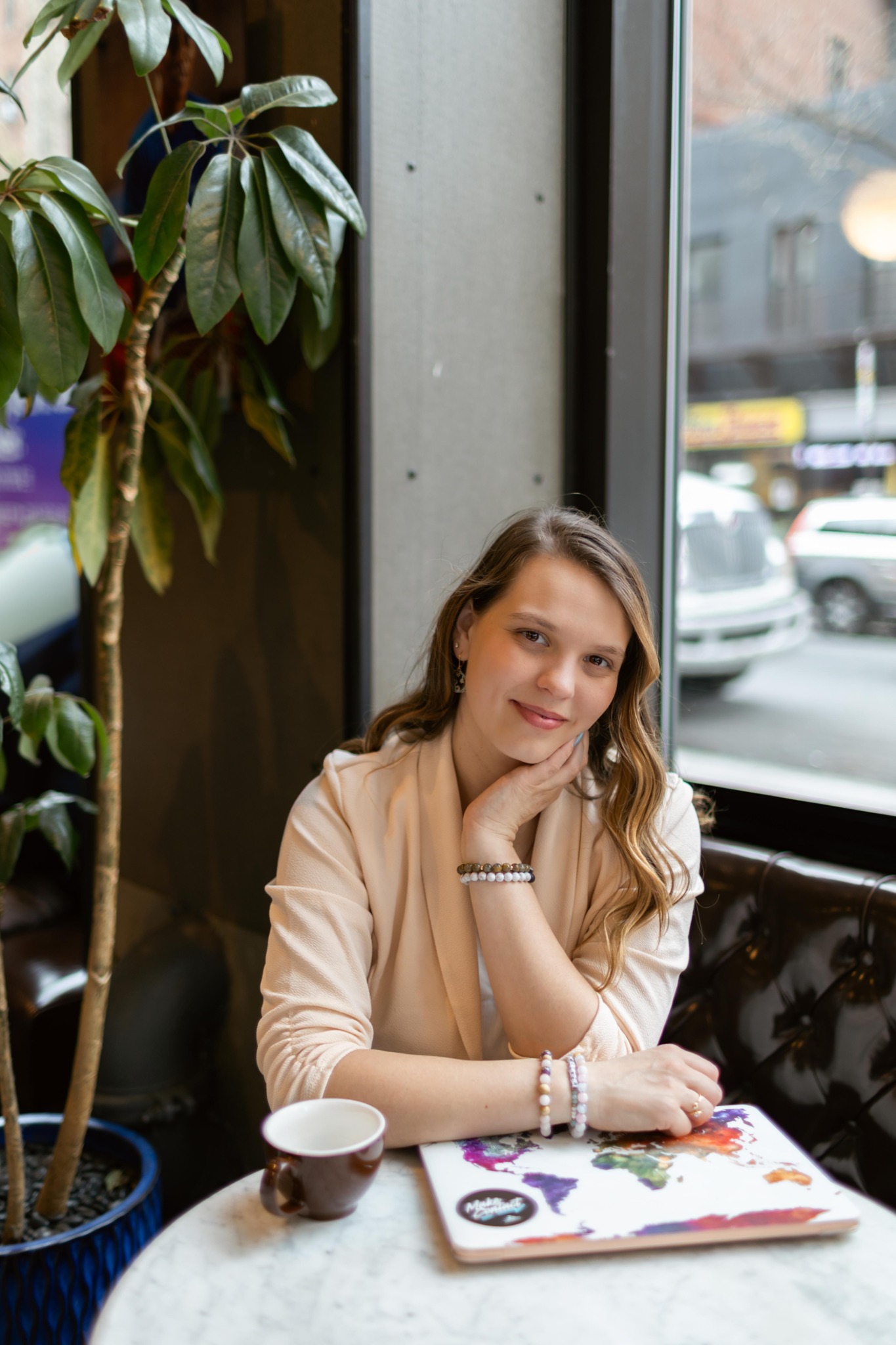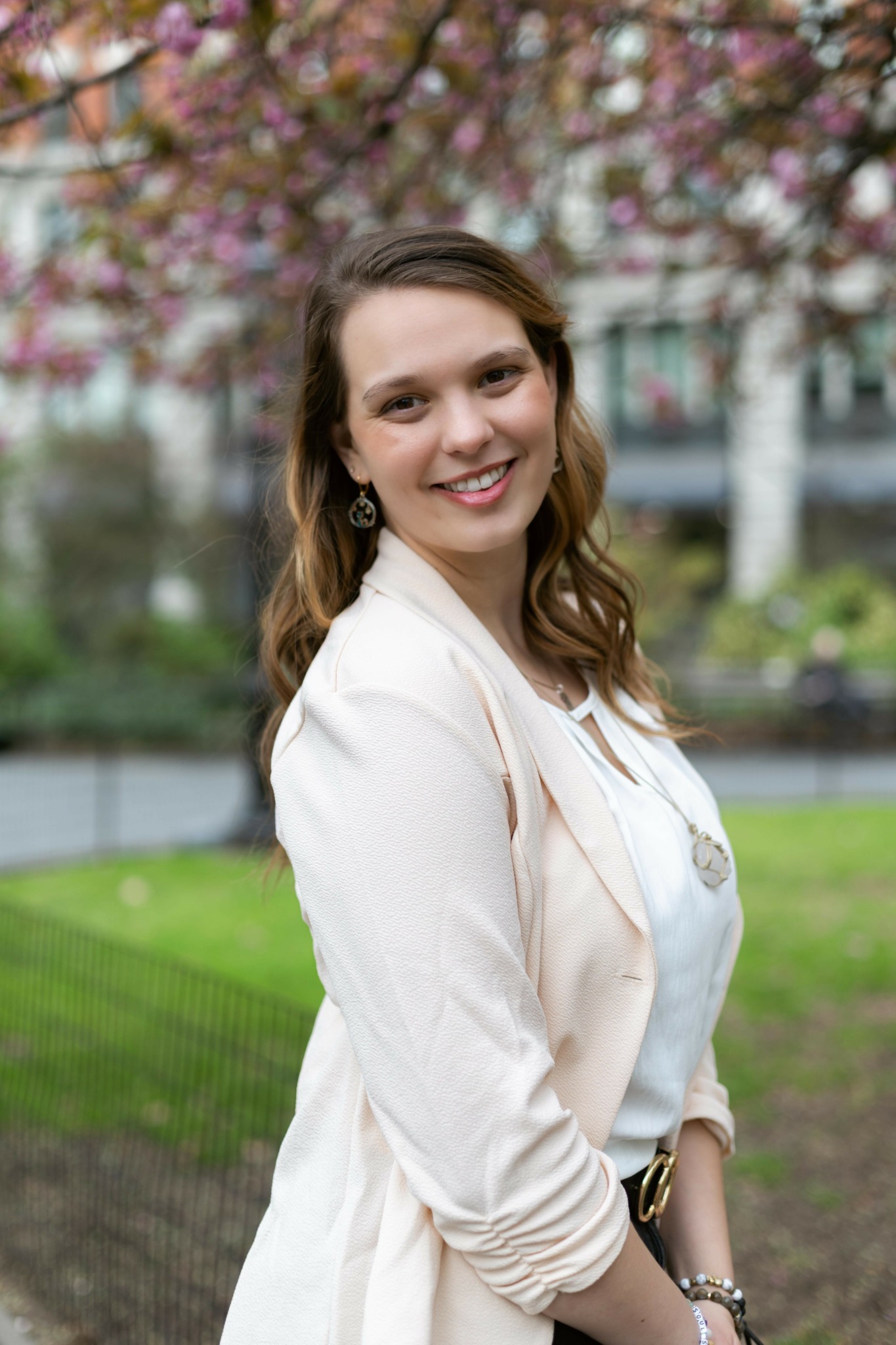We’re excited to introduce you to the always interesting and insightful Jaclyn Paradise. We hope you’ll enjoy our conversation with Jaclyn below.
Alright, Jaclyn thanks for taking the time to share your stories and insights with us today. It’s always helpful to hear about times when someone’s had to take a risk – how did they think through the decision, why did they take the risk, and what ended up happening. We’d love to hear about a risk you’ve taken.
I remember the moment everything finally clicked—every ounce of confusion, every second-guessing thought suddenly made sense. I was sitting in a room, listening to how rehabs actually stayed open—not just from big pharma reps dropping off samples, but from something far more insidious. It was the behind-the-scenes reality that sparked a deep fury in me. Body brokering. A system designed to keep the boys’ club in business—profiting off pain, disguising greed as care. And in that moment, I knew I couldn’t stay silent.
Let’s rewind a bit before diving deeper—because here’s the truth: everyone has their addiction. Addiction isn’t just about what you use; it’s about behavior, pain, and survival. For me, I stayed in school consecutively, moving straight from undergrad into grad school—not just out of ambition, but because I was running. School became my safe place, a distraction from the looming weight of adult responsibilities I didn’t feel ready to face. While finishing my last year of undergrad, I was already knee-deep in my first year of grad school. By the time I wrapped up both, I was 23 and stepping into a full-time role at the substance use rehab where I had spent the last nine months interning. To me, becoming a therapist meant understanding that everyone has a story. We’re all running from something. And the most powerful way to heal is to stop running—to walk straight through the pain and discover that, now, we are safe.
Body brokering wasn’t something revealed to me overnight. It unfolded slowly—session by session, red flag by red flag. I’d sit in group therapy and wonder: what’s really causing these clients to relapse the moment they leave, only to return again and again? I’d have in-depth conversations with other therapists about how the business side of the program never seemed to understand the clinical side. We were left with scraps—our decisions rarely prioritized, our insight often ignored. I found myself constantly walking on eggshells around higher-ups, sensing something deeply off behind the scenes. And after just three attempts at questioning the system, I learned the hard truth: the more I spoke up, the larger the target on my back grew.
Before stepping into my current role, I worked at three different higher-level-of-care facilities. I was a recent graduate, living paycheck to paycheck, just trying to “earn my keep” in the field. But with each job, my time there grew shorter—some positions I don’t even list on my résumé. Something always felt off. Then, in February 2024, the state of New Jersey released its investigation: “The Dirty Business of Getting Clean.” Suddenly, it all made sense. I went from wondering, “Am I just causing a ruckus?” to realizing my moral intuition had been right all along.
For about six months, I bounced between jobs, struggling to find my footing. Financial stability weighed heavily on my mind. Around that time, a recruiter reached out with what seemed like a dream opportunity—higher income, financial relief, the chance to finally move out on my own. I went through the interview process, hopeful. But something inside me wouldn’t settle. I felt a deep internal conflict. While I needed the paycheck, I couldn’t ignore what I knew: that behind the scenes, many of these clients weren’t receiving the care they truly deserved. And I couldn’t be part of that—not anymore.
I remember sitting in my car in the parking lot, tears in my eyes, as I called an old colleague. She was about a year and a half into building something different—something that felt more human. Instead of staying in the private rehab world, she had chosen to continue her career in a space that was truly person-centered. She once told me, “We may not be able to change the business side alone, but we can make the client’s experience more meaningful.”
That day, I asked her through tears, “Would you hire me if I quit my job tomorrow?” She didn’t hesitate—she had been trying to bring me on for over a year. We had once been a team at a previous facility, the kind of team that believed in trauma healing as more than just a buzzword. We were the ones pushing boundaries, questioning systems, and reminding clients that they mattered—even when everything around us said otherwise.
I took a significant pay cut to join her. It wasn’t easy, but I was lucky to have support through a second job and from family and friends. A few weeks later, I started.
And for the first time in a long time, I wasn’t dissociating at work. My stress levels eased. I no longer felt like I had to walk on eggshells just to do my job. I may have lost financial comfort—but I gained something far more valuable: alignment. Alignment with my values, my purpose, and the deep knowing that every client deserves to heal—and that they are never a burden to this world.
I’ve now been in the therapeutic field for about three to four years, and I’m still learning—every single day. But taking this risk gave me something I hadn’t realized I was missing: the space to realign with what truly speaks to me. It allowed me to pour my energy into work that feels soul-led. I became a certified yoga instructor, drawn to the wisdom of learning what it means to meet your edge—and choose to lean into it. I deepened my practice in somatic healing through Integrated Energy Therapy, recognizing that true transformation begins within, even if we need external support to start the process.
And while I may not be able to stop body brokering or dismantle an entire system on my own, I can use what I know to educate others. I can speak truth in spaces where silence once protected profits. I can teach clients—and fellow clinicians—that healing is not a transaction. It’s a birthright.
This journey reminded me that healing isn’t linear, and neither is the path we take to offer it to others. The risk I took wasn’t just about leaving a job—it was about returning to myself and choosing, again and again, to live in alignment with what I believe is right.

Great, appreciate you sharing that with us. Before we ask you to share more of your insights, can you take a moment to introduce yourself and how you got to where you are today to our readers.
I am a Licensed Associate Counselor (LAC) and Certified Trauma Professional (CTP) with a background in somatic, trauma-informed, and integrative mental health care. My work is rooted in the belief that healing is a full-body experience—emotional, spiritual, and physical—and that true transformation begins when we’re brave enough to turn inward.
I was drawn to this field through both personal experience and deep curiosity about the ways pain is stored in the body. While earning my degrees, I began working in substance use and trauma treatment centers, and I quickly learned that the clinical model alone couldn’t hold the full weight of people’s lived experiences. I witnessed how systems often overlooked the humanity of both clients and clinicians, and I made it my mission to approach therapy differently.
Currently, I work full-time at a substance use rehabilitation center in New Jersey, where I support individuals in early recovery and long-term healing. I also work part-time with Authentically Living Psychological Services, offering individual and group therapy with a focus on holistic trauma recovery.
These days, I work with adults navigating complex trauma, anxiety, identity shifts, and big life transitions. I focus on helping people heal from trauma through IFS-informed care, somatic work, and mindfulness-based practices. When it feels aligned, I also bring in energy work and yoga philosophy to support the process in a deeper, more embodied way. Alongside individual therapy, I run trauma-informed groups that center around inner child healing and chakra-based emotional exploration—spaces where people can feel, reconnect, and come back home to themselves.
What sets me apart is my ability to blend grounded clinical tools with intuitive presence. I hold space that allows clients to feel seen, not pathologized—to connect with the parts of themselves they’ve had to hide just to survive.
What I’m most proud of isn’t a title or credential—it’s the moments clients tell me, “I’ve never felt this safe in therapy before,” or “This finally makes sense.” That’s the kind of impact I strive for.
If you’re new to my work, here’s what I want you to know: You are not broken. You don’t need fixing. You deserve care that honors your whole self—mind, body, and soul. And I’m here to help guide you back home to that truth.

Putting training and knowledge aside, what else do you think really matters in terms of succeeding in your field?
Honestly? Doing your own healing work. That’s been the biggest game-changer for me in this field—more than any textbook or training could offer. It’s one thing to sit in class and learn the theories, but it’s another thing entirely to sit with yourself… to actually face your own stuff.
I’ve found that when you do the inner work, you start to understand how certain clients or situations might activate something in you. You’re more aware of your reactions, your limits, and the energy you bring into the room. That self-awareness is everything—it’s what allows you to hold space without projecting, without rescuing, without shutting down.
And when clients are doing really deep work, they can feel when you’ve done yours. It builds trust. I’m not saying you have to be “healed” to be a good therapist—none of us ever fully are—but there’s a big difference between showing up as someone who’s willing to keep doing the work versus someone who’s just saying the right words. Clients know the difference.
So yeah—training matters, but your own healing? That’s where the real depth comes from.

Do you think you’d choose a different profession or specialty if you were starting now?
If I could go back, I would absolutely choose the same profession and specialty. That wasn’t always clear from the start—I changed my major three times in college, moving from education to speech pathology to psychology. At the time, it felt like I was figuring things out. But now I see that each path had something in common: they were all centered around human connection and helping others grow.
Becoming a therapist has felt like stepping into what I was always meant to do. What I love most about this work is how dynamic it is—I get to show up in so many different ways. No two sessions are ever the same. I never fully know what’s going to open up, and that unknown is what keeps it so alive for me. I find it exhilarating to witness someone’s vulnerability deepen, to see them begin to feel safe within themselves. That transformation—when clients start trusting their own voice, their own body, their own story—is what I live for.
It’s a privilege to walk alongside people on their healing journeys. This work challenges me, grounds me, and grows me. And even with all the ups and downs of the field, I wouldn’t trade it for anything.
Contact Info:
- Website: https://www.authenticallylivingpsych.com/about-jaclyn-paradise
- Instagram: https://www.instagram.com/hopeinserenity/
- Linkedin: https://www.linkedin.com/in/jaclyn-paradise-ma-lac-ncc-ctp-cmip-b152ab1aa
- Other: Psychology Today: https://www.psychologytoday.com/us/therapists/jaclyn-paradise-montclair-nj/1257726
Google Bussiness: https://g.co/kgs/K1DaQcZ


Image Credits
NessNessPhotography
GiannaCarlyPhotos


